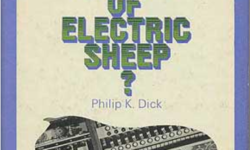Science fiction & history
I am interested in how science fiction, particularly in television and film, intersects with history. My work focuses on environmental issues as well as museums and knowledge-making in science fiction.

In Literary animal studies and the climate crisis, ed. Sune Borkfelt and Mattias Stephan, 229-243 (Palgrave Macmillian, 2022) Philip K. Dick’s Do Androids Dream of Electric Sheep? (1968) is often understood as commentary on what it means to be human contra android. Less work has been done on animals in…
Read more…
Configurations 30, no. 3 (2022): 367-375 An encounter in a museum—viewing objects in a display case or a wall filled with art—is always an encounter with curation. Science fiction gives insights into the power inherent in the curator’s role. Although curators are scarce in science fiction, one major science fiction character…
Read more…
Green Letters 23 (2019): 54-67 Abstract: This article analyses how four science fiction stories frame whale endangerment and salvation as a problem of ecosystem service loss: Arthur C. Clarke’s The Deep Range (1957), Star Trek IV: The Voyage Home (1986), the Doctor Who episode ‘The Beast Below’ (2010), and T.J. Bass’s The Godwhale(1974). It uses the four…
Read more…
In Time Travel in Popular Media: Essays on Film, Television, Literature and Video Games, ed. Matthew Jones and Joan Ormrod, 118–131. Jefferson, NC: McFarland, 2015. Science fiction as a genre has often invoked museum settings as windows into the past, as places of memories. How does that function when a science fiction…
Read more…
Ecozon@: European Journal of Literature, Culture and Environment 3, no. 2 (2012):[online] This article analyzes the television science-fiction show Doctor Who as a cultural forum within the context of British eco-activism of the 1970s. It examines four serials which aired during the 1970s during the first wave of eco-activism in the…
Read more…
In Star Trek and History, ed. N. Reagin. New York: Wiley & Sons, 2013, 242-259. During the last decades of the 20th century, the environmentalist movement came of age. As it developed into a mass movement, it gradually changed its arguments and strategies for persuading the public that endangered species…
Read more…

